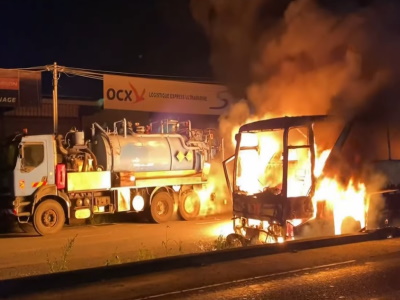Public Prosecutor’s Office Curacao
WILLEMSTAD (Curacao.nu)– Many justice organizations in Curaçao are lagging behind in following recommendations of the Council for Law Enforcement. This is evident from a recent follow-up study by the Council into the implementation of recommendations. The figures show that only a small number of organisations have fully implemented their recommendations, while most still have large backlogs.
The survey shows that the Public Prosecution Service (OM) followed the most recommendations with 73 percent, followed by the Training Institute for Law Enforcement and Security Care (ORV) with 45 percent. On the other hand, addiction clinic Brasami ranks the lowest, with only 17 percent of recommendations followed and a large portion of 83 percent recommendations not followed.
The bottlenecks identified by the Council are mainly a shortage of staff and financial resources. In the case of Brasami, for example, more than 700,000 guilders in subsidies were cut between 2018 and 2021. This lack of resources hinders the organization from implementing the recommendations and improving its services.
National Ordinance
At the Curaçao Juvenile Correctional Institution (JJIC), the implementation of recommendations has also come to a standstill. An important national ordinance that defines the tasks of the institution has still not been approved by the Ministry of Justice. As a result, there is insufficient funding available to realize crucial construction projects.
The Coast Guard and the National Criminal Investigation Department Curaçao (LrC) are also facing similar problems. Although the Coast Guard has made some progress, with 55 percent of the recommendations implemented, sharing information with chain partners remains a concern. The LRC is lagging behind due to a lack of legislation, which prevents important organizational improvements from being implemented.
The Probation Service is another problem child with only 33 percent of recommendations followed and an overwhelming 67 percent of recommendations not followed. As with other organizations, staff shortages are a major obstacle. The necessary legislative changes to formalize the probation organization have still not been adopted.

Urgency
In a response to the study, the Council points to the urgency of tackling these bottlenecks. “It is worrisome that so many recommendations have still not been implemented. Many of these issues are related to a lack of resources and direction. We call on the relevant authorities to take these issues seriously and take action,” a Council spokesperson said.
The full report is available on the website of the Law Enforcement Council [https://www.raadrechtshandhaving.com/wp-content/uploads/2024/09/Rapport-Review-Algemene-Aanbevelingen.pdf]. The Council hopes that the findings will serve as a wake-up call for the relevant authorities to initiate the necessary reforms.
Looking to the future, the Council stresses that the problems in the justice chain will not disappear on their own without structural changes and a better use of resources.











